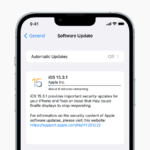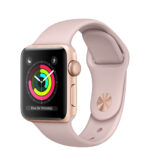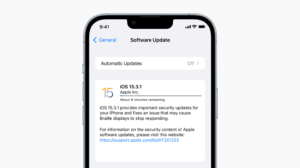
Introduction
As our need for massive amounts of data grows, the role of a data scientist has become increasingly important. A job that had hardly been heard of a few short years ago is now in heavy demand, resulting in the appearance of many candidates with tangential skills which they are hoping to parlay into a career in data science. Many of these people come from a background where they are in fact well-suited to the task, and have even been performing jobs that would now be called data science. However, the demand is so great that less-qualified candidates can present themselves and look very appealing as potential hires.
How can you tell the difference between a good data scientist and a bad one? Having certain skills is important, but it’s also important to remember that skills are only part of the story. Skills can be learned, while other qualities, like a sense of team and the ability to communicate, tend to be innate. Having a passion for data science and the ambition to keep developing skills is critical to success, but of equal importance is the ability to fit smoothly into a team and be able to support key organizational strategies.
Ten Data Scientist Flaws to Avoid
Watch out for Skill Gaps…
- The One Without a Mathematical Background
Math is a core skill for data scientists. Data science is largely built on statistical analysis, and without this key skill, a candidate has little to offer in the way of data science. Analytics are done using algorithms, usually derived from statistics and other mathematical fields, and without a true comfort with these concepts, your data scientist’s ability to make sense of the results of an analytics routine is limited.
Knowing how to work with data to understand its meaning, identify trends, classify and derive missing information depends on good math skills – which means not only knowing the names of the algorithms popular in the analytics world, but also how and why they are used, and what combinations may align best with your business goals.
- The One Without a Science Degree
If your candidate doesn’t have a math degree, then look for a strong science degree with a great deal of math in the skill set. After all, data science is a science, and scientists not only have a functional knowledge of higher mathematics, they are familiar with the scientific method – a fundamental requirement for being able to assess the results of an analytics plan in terms of effectiveness and suitability to the purpose.
- The One Without a Strong Computer Background
A person presenting him- or herself as a data scientist also needs deep computer skills. Most of the tools required for data science are computer-driven. You don’t need someone who can fix your operating system and troubleshoot network issues, but you do need someone who is comfortable working digitally and who can use the tools of the trade. You wouldn’t hire an administrative assistant who can’t use a computer and word processor; neither should you hire a data scientist who can’t use an analytics program or run SQL queries.
Math and computers are the primary things you want to see in the background of your data scientist, but it is probably easier for a mathematician to acquire the computer skills needed than for a programmer to learn to embrace mathematics and use it effectively.
- The One Who Doesn’t Know the Tools
Speaking of being able to learn the tools, hiring someone who is coming from a point of zero knowledge is not acceptable. A data scientist who is strong in math should still be familiar with at least some of the tools used in analytics. Check the resume for Spark, for Scala, Python, Matlab, or SAS. Some if not all of these tools should be on the resume – otherwise you have a mathematician, perhaps a statistician, but not a data scientist.
One problem frequently encountered in finding a good data scientist, is a preference for SAS to the exclusion of all other tools. SAS is one of the more accessible data analytics suites, and it offers terrific capabilities, but it is not the only tool a data scientist should consider when setting up a framework for analytics. An experienced data scientist knows the tools that are available, and which might be best for the type of data you have and the goals of your analytics. SAS coders are data scientists only if they know more than how to code – they need to be able to use a variety of tools, and to be able to read and analyze data.
- The One Who Doesn’t Understand Business
Your data science candidate must have some understanding of the world of business, be able to comprehend your specific organization, and understand how his or her knowledge can help you to achieve your business goals.
Making sense of data can’t be done in a vacuum. Your candidate should have questions to ask you about your business and your requirements, how data is acquired, what that means in terms of its validity, and what kinds of analytics will really help your organization. An ideal candidate will not only be able to suggest ways of approaching specific data problems that you present; he or she should be able to extend that knowledge to be able to suggest the additional value that you can get from your data.
A good data scientist can work with your data and your people, but a great data scientist will be something of a business analyst as well.
- The One Without Practical Experience
Your candidate should be more than a theoretician. It’s important to know the available tools and to have a strong math or science background, but if practical experience is missing, this is not the right person to spearhead your data analytics efforts. Someone who can memorize a list of algorithms, but can’t apply them or understands how and why they work will not be able to do the job.
A data scientist who hasn’t gotten his or her hands on data can learn and assist, but cannot drive a satisfactory data analytics plan. Throwing around names like SAS, R, Scala, or Python might sound good, but it’s critical to investigate the candidate’s real, hands-on experience.
Watch out for Personality Gaps:
- The One Who Only Works Alone
Whomever you hire, in whichever position, there are personality traits and work ethics that you want, and one of those is the ability to work in a team, both by recognizing the contributions of others as well as having contributions of one’s own. In data science, a team mindset is important because the job requires that the candidate understands data in depth, including how it affects others in the organization. In order to understand the results of analytics, to get the best results, and to find new and better ways of using and analyzing the data, the scientist must be willing and able to work with others in the organization, and to value other functions and departments.
Willingness to ask questions in order to deepen one’s understanding of other areas of the organization is a good indicator of someone’s ability to be a team player; and the other good indicator, of course, is the ability and willingness to share the information learned in this way.
- The One Who Can’t Communicate
And so, another thing you don’t want to see in your candidate is lack of good communication skills. A data scientist has to be able to explain complicated mathematical and statistical concepts, like what algorithm might be appropriate in a given situation, or why it may be necessary to combine techniques. He or she then needs to be able to explain the results in layman’s terms, with clarity and unambiguously; to answer questions that may range from the very elementary to the highly informed; and finally, the data scientist needs to be able to add value in the form of insight and observation which can be communicated to an audience with a varied skill set.
People will need to be able to approach the data scientist with requests and/or questions, and know that they will receive a well-considered answer in terms they can understand.
The data scientist needs a particular type of communication skill: the ability to break down complex processes and problems into smaller, bite-sized pieces; to be able to understand and parse business jargon; and to be able to overcome what is essentially a language barrier that often separates departments within an organization. Since the data scientist’s job will most likely span most, if not all departments, his or her communication skills must be up to the challenge.
- The One Who Knows it All
Know-it-alls are dangerous and seductive because we all want to find the person with the answers. But data science is a thoughtful science, in which people have to apply deep knowledge to complex subjects, so beware of candidates who always have a ready, glib answer. Data science poses problems that people need to think through in order to come up with good answers.
In addition, know-it-alls are rarely good listeners, which is one of the hallmarks of a good communicator, and which is critical in being able to grow and expand one’s knowledge. Those who want to provide you with any answer rather than the right answer are likely to lead your data analytics plan down a bad path. If they return results that are not relevant to you, they are more likely to justify their method than to adapt their approach to give you what you want.
A little self-doubt can be a powerful ally for critical thinking – which is something your data scientist truly needs.
- The One Who Isn’t Curious
Data science is evolving constantly, and you need someone who can keep up with new developments and new technology. An element of curiosity is critical – and a lack of it should be a deal-breaker. A data scientist who only sticks with tools he or she knows well, who doesn’t experiment, and who doesn’t try new things, is a data scientist who will not help you get real value from your data. Not every experiment may work out, but that’s not as important as whether or not your candidate is willing to experiment, to dig deep, and to find out what works, why it works, and what might work even better.
In addition to the question of keeping up with technology, of course, is that your data scientist should be curious enough to want to find out even more about what your data can say than you’ve asked for! A true data scientist is, most of all, a scientist: curious, and always looking for better and more accurate answers.
Conclusion
For most organizations, unless they have been analytics firms, data science is a new and necessary addition to their data management plan. Chances are you’re not going to find someone with a math, science, computer, and business background, so for your organization, you’ll have to decide which requirements will give you the most value. Finding the best qualifications in all areas of a single person is almost impossible, but knowing what to avoid can help you to adjust on the right candidates for the job.













Add Comment